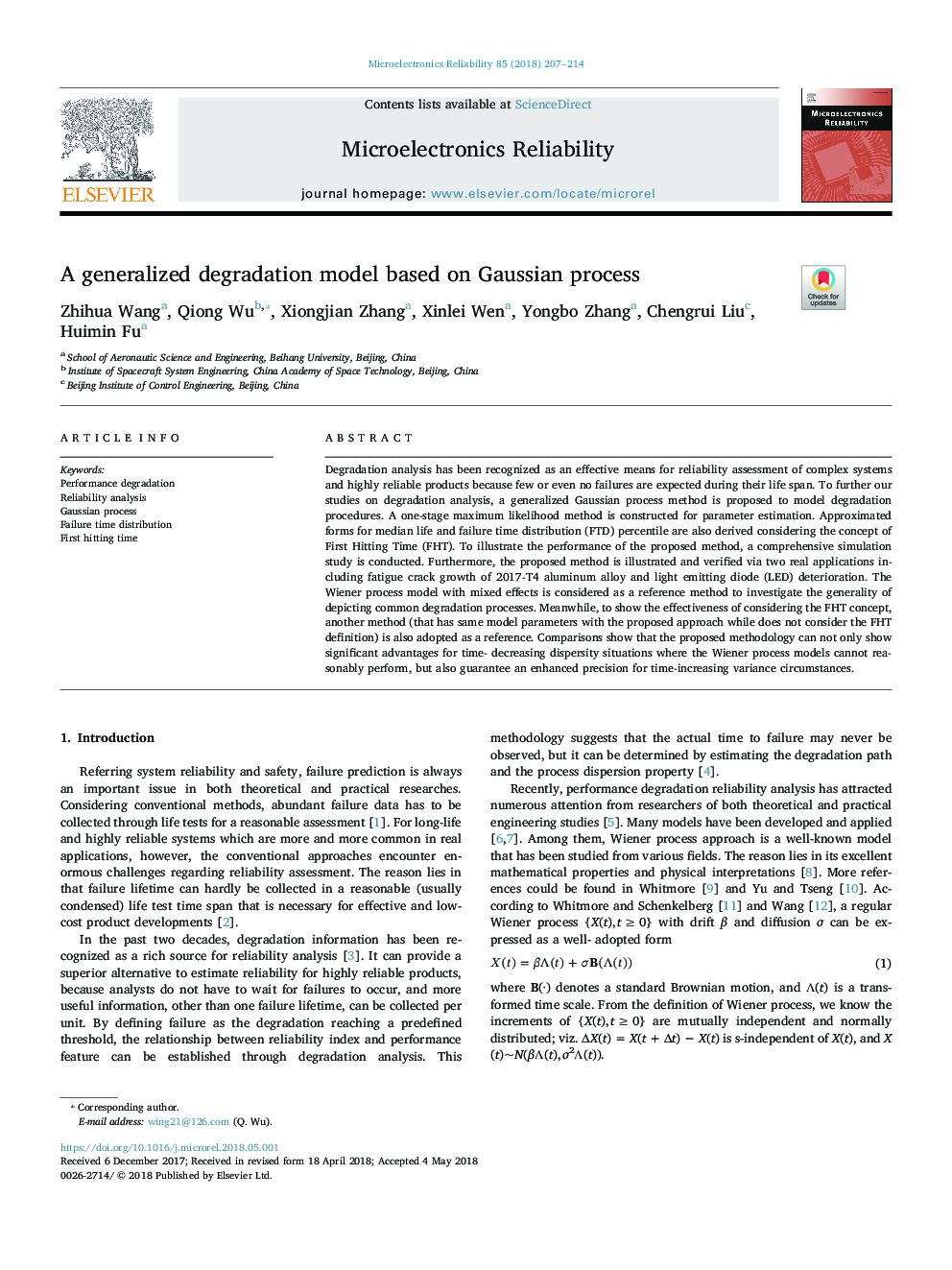| کد مقاله | کد نشریه | سال انتشار | مقاله انگلیسی | نسخه تمام متن |
|---|---|---|---|---|
| 6945534 | 1450516 | 2018 | 8 صفحه PDF | دانلود رایگان |
عنوان انگلیسی مقاله ISI
A generalized degradation model based on Gaussian process
ترجمه فارسی عنوان
یک مدل تخریب عمومی بر اساس فرآیند گاوسی
دانلود مقاله + سفارش ترجمه
دانلود مقاله ISI انگلیسی
رایگان برای ایرانیان
کلمات کلیدی
تخریب عملکرد، تحلیل قابلیت اطمینان، روند گاوسی، عدم توزیع زمان، اولین بار ضربه زدن،
موضوعات مرتبط
مهندسی و علوم پایه
مهندسی کامپیوتر
سخت افزارها و معماری
چکیده انگلیسی
Degradation analysis has been recognized as an effective means for reliability assessment of complex systems and highly reliable products because few or even no failures are expected during their life span. To further our studies on degradation analysis, a generalized Gaussian process method is proposed to model degradation procedures. A one-stage maximum likelihood method is constructed for parameter estimation. Approximated forms for median life and failure time distribution (FTD) percentile are also derived considering the concept of First Hitting Time (FHT). To illustrate the performance of the proposed method, a comprehensive simulation study is conducted. Furthermore, the proposed method is illustrated and verified via two real applications including fatigue crack growth of 2017-T4 aluminum alloy and light emitting diode (LED) deterioration. The Wiener process model with mixed effects is considered as a reference method to investigate the generality of depicting common degradation processes. Meanwhile, to show the effectiveness of considering the FHT concept, another method (that has same model parameters with the proposed approach while does not consider the FHT definition) is also adopted as a reference. Comparisons show that the proposed methodology can not only show significant advantages for time- decreasing dispersity situations where the Wiener process models cannot reasonably perform, but also guarantee an enhanced precision for time-increasing variance circumstances.
ناشر
Database: Elsevier - ScienceDirect (ساینس دایرکت)
Journal: Microelectronics Reliability - Volume 85, June 2018, Pages 207-214
Journal: Microelectronics Reliability - Volume 85, June 2018, Pages 207-214
نویسندگان
Zhihua Wang, Qiong Wu, Xiongjian Zhang, Xinlei Wen, Yongbo Zhang, Chengrui Liu, Huimin Fu,
